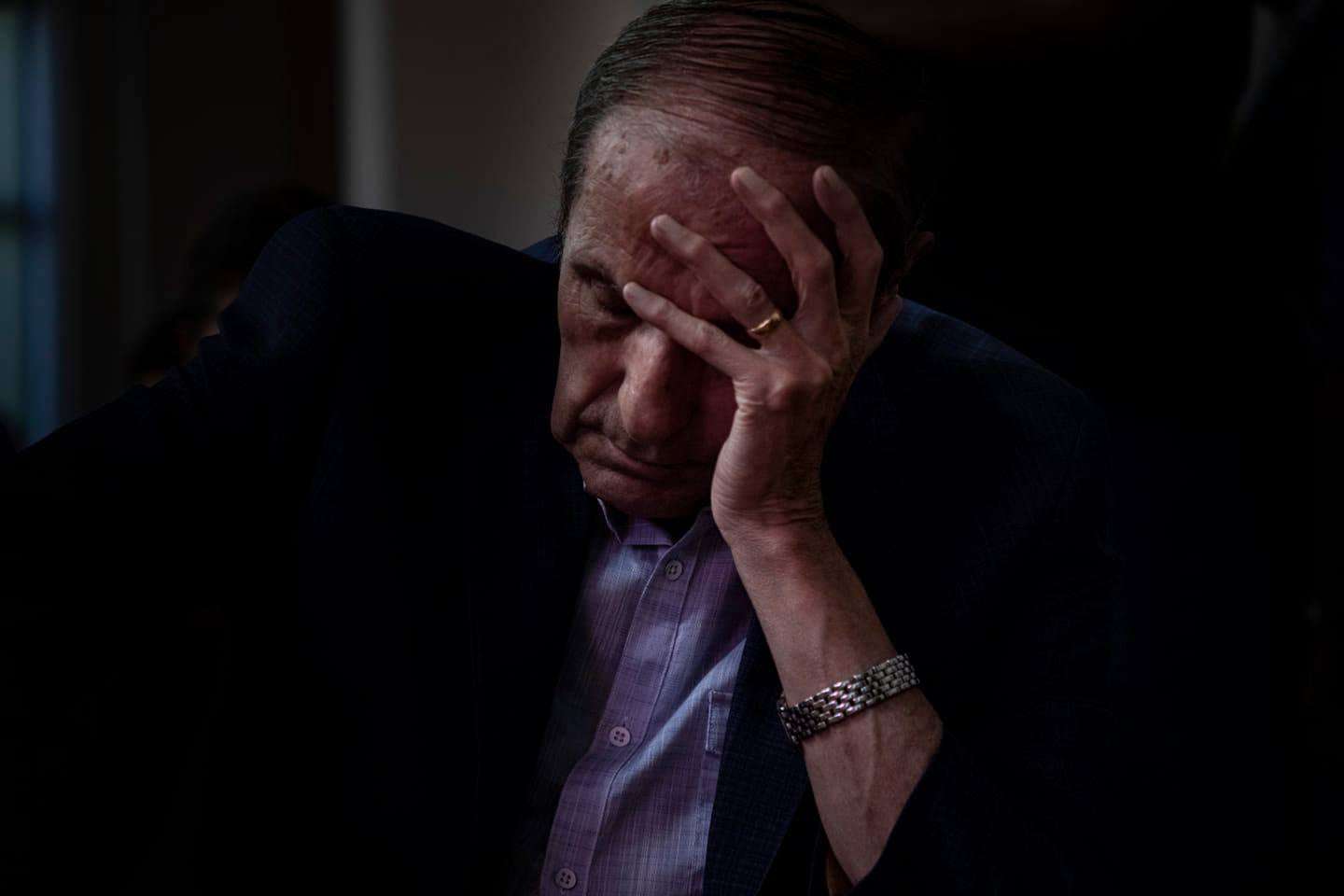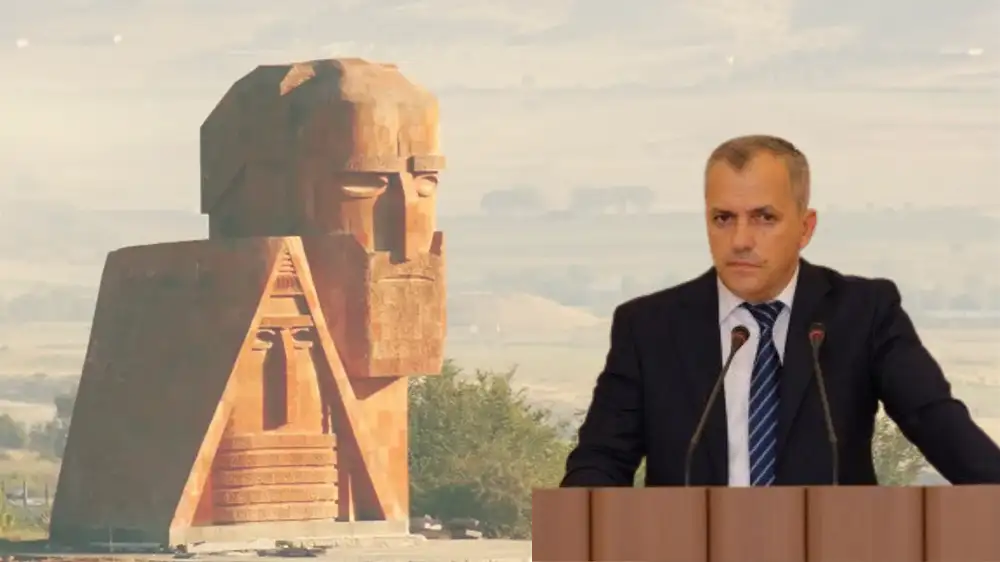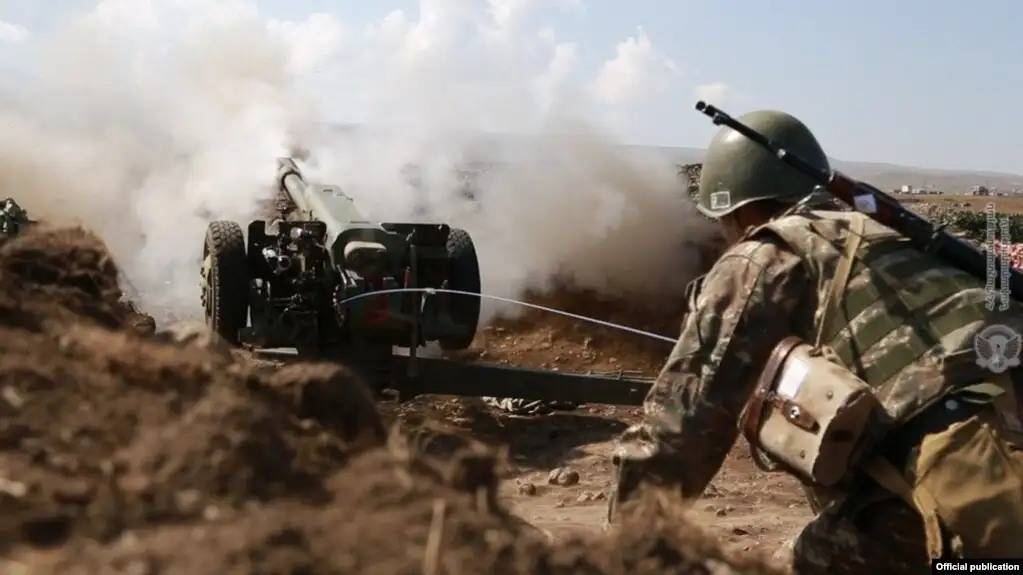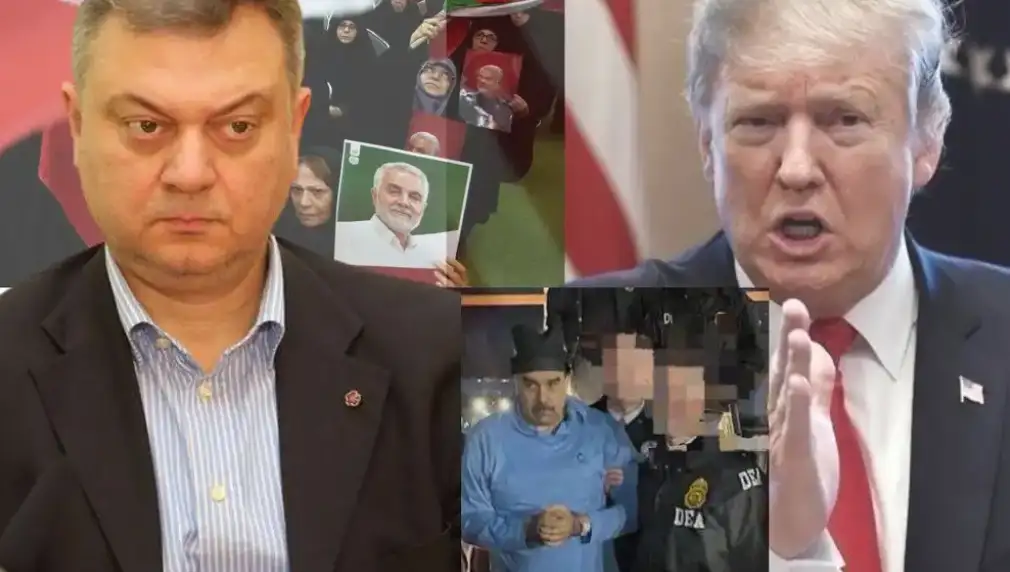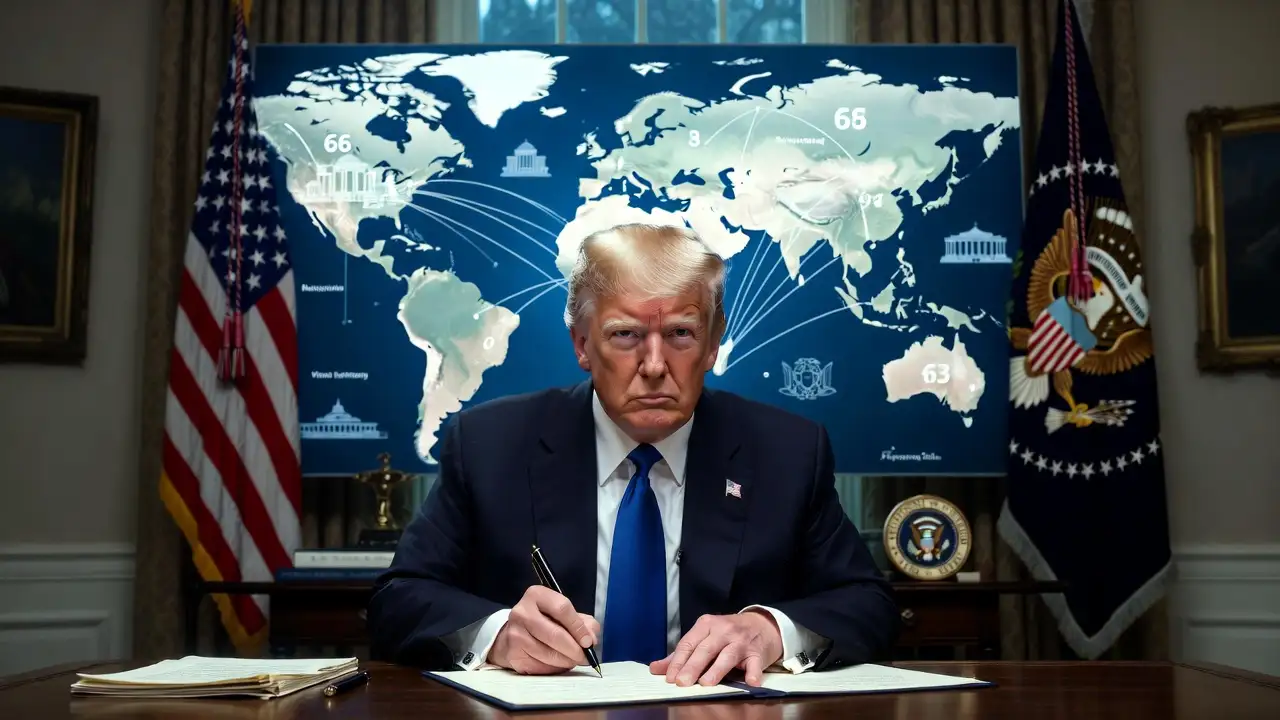On November 1, 1997, RA President Levon Ter-Petrosyan published the "War or Peace? The moment to get serious" article, which was reprinted many times in the following years. This article is unique as a comprehensive product of political realism, a peak of Armenian political realism. It has been relevant for almost two decades regarding the issues it raised, their interpretation, and inciting the debate. Unfortunately, after the 44-day war of 2020, the article is an ominous example of predicting the events where all the raised concerns and worries about future losses became a reality. Indeed, the author would be delighted if any of the predictions mentioned in the 25-year-old article had not come true. Radar Armenia presents the entire article to its readers.
My press conference on September 26, more precisely, the part of the press conference devoted to Karabakh, gave rise to intense passion in the press and the gatherings organized by the opposition. It was not a surprise for me, and I expected even stronger resistance to some extent.
The surprise was the quality of the debate or the complete lack of discussion. I confess I did not achieve my goal: to start a serious debate in the press and in public meetings about the most delicate problem facing the Armenian people, the possible ways of settling the Nagorno-Karabakh conflict.
The opposition’s reaction did not go beyond cursing, attributions, labels, and distortions. No rational proposal was made, no alternative plan was presented, and no valid counterargument was presented. Two conclusions can be drawn from this. Either the opposition does not have any plan for Karabakh settlement, or if it has, but hides it, it is not engaged in pro-national work. I refrain from a stricter qualification.
[ page ] What did the people understand from the noise made by the opposition? That we have shed blood for Artsakh, that by returning the occupied territories, the existence of Artsakh is threatened, that for the sake of Artsakh, the Armenian people are ready to shed blood again, that we do not care about world opinion, that we will bring both Azerbaijan and the international community to their knees, that we will "become a nation of faith.” And then. No one tried to answer the following simple questions.
- After doing all this, will we reach our desired goal or not? - When we spit on the face of the world, what will it answer us with? - will the innocent blood of 500 people be gathered at Kino House, or our people be spilled?
At least the last question can be answered unequivocally. Not even a hair will be missing from the head of five hundred people, regardless of what kind of sacrifices they are willing to make today. When Artsakh was in danger, when the enemy came close to Gandzasar, none of them responded to Vazgen Sargsyan's call and did not join the regiment of martyrs. Our people must be fed up with those who seek glory and pretend to be heroes at the cost of someone else's blood.
Apart from political considerations, the opposition's confusion may be partly explained by ignorance; this is natural because only six people have expert knowledge of the conflict settlement process in Karabakh and Armenia: Arkady Ghukasyan, Robert Kocharyan, Alexander Arzumanyan, Vardan Oskanyan, Zhirayr Liparityan, and me.
The subject of the debate
However, the debate was unsuccessful, which should satisfy me and our society. Sooner or later, any politician or intellectual who aspires to manage the nation's destiny will have to give up blasphemy (I'm not talking about people with mental health conditions) and present a concretely calculated plan to the people. Without waiting, I am ready to discuss Nagorno-Karabakh today's settlement seriously. Any reasonable suggestion, I agree to any level of public debate.
However, the debate can be substantive only by prioritizing a few starting points, namely:
- Should the Nagorno-Karabakh issue be resolved through war or peaceful negotiations?
- Is it possible to maintain the status quo and the unresolved situation of the Karabakh problem forever or even for a long time?
- Is the settled or unsettled state of the issue beneficial to Karabakh and Armenia?
- Should the issue be resolved by compromise or by the defeat of one of the parties, and in that case, who will be the defeated party?
I have expressed myself clearly about these provisions many times, and I still insist today that:
- War should be excluded. Therefore, the Karabakh issue should be resolved only through peaceful negotiations.
- It is impossible to maintain the status quo for long because neither the international community nor Armenia's financial capabilities will allow it.
- The unsettled state of the issue is not beneficial for Karabakh and Armenia because it significantly hinders the economic development of Armenia and, therefore, Karabakh creates complications in relations with the international community and especially with neighboring countries, which can be fatal.
- Karabakh issue
The only option for solving the Karabakh issue is compromised, which does not mean the victory of one side and the defeat of the other, but a possible agreement reached in the state of conflict resolution. Let them try to be clear to the people by saying there is an alternative to compromising. The option to compromise is war.
Rejection of compromise and maximalist (striving to achieve the maximum and not the possible) is the shortest way to the destruction of Karabakh and the deterioration of the situation in Armenia.
It is not about giving or not giving Karabakh. It is about keeping Karabakh Armenian. Armenians inhabited it for 3000 years, and Armenians should occupy it after 3000 years.
The path I have chosen will ensure that perspective and maintain opportunities to reach our longed-for goal. The way of adventurers will lead to inevitable defeat. We already lost Western Armenia by "turning Istanbul into a sea of blood,” Another time, demanding the territories delineated by the Treaty of Sevres, we lost half of Eastern Armenia.
Apart from the essence of compromise, the moment of settlement is also critical. It is evident that in the case of the center, the stronger side has the opportunity to obtain the maximum available. Today, Armenia and Karabakh are more vital than ever, but if the conflict is not settled, they will become much weaker in a year or two. What we reject today, we will ask for in the future, but we will not receive, as has happened many times in our history.
It is necessary to be realistic and understand that the international community will not tolerate the situation created around Nagorno Karabakh for a long time because it threatens regional cooperation, security, and the West’s oil interests. Sooner or later, a compromise program of the settlement will be imposed on the parties, which will not be a legal, but a political solution to the issue. However, the world powers will force it as an exemplary manifestation of international law. Neither Azerbaijan nor Karabakh and Armenia will be able to avoid compromise, just as the parties to the Bosnian and Arab-Israeli conflicts were unable to prevent it. On the contrary, the conflicting parties themselves still have to make enormous efforts for its early establishment because the alternative, as it was said, is war and new sufferings of the people.
Compromise is not a choice between good and evil but between bad and worst; that is, compromise is just a way to avoid the worst, which the conflicting parties forcibly use when they have realized the worst and can show political will and necessary courage.
When applying for a compromise, the parties are usually guided by several considerations: to eliminate the conflict that inhibits their regular life activity and development and is fraught with grave dangers. To freeze the problem, postpone it to gain time, accumulate strength, and solve it in their favor under more favorable circumstances; to avoid unforeseen complications, hoping that in the future, as a result of the rooting of new thinking in the relations of peoples and the reevaluation of values, the problem may lose its sharpness. Borders, for example, may not have the significance they have now. That thinking and revaluation of values are dominant in Europe today. Tomorrow, they may also become prevalent in the Middle East, the personal testimony of which is, perhaps, the Arab-Israeli peace process.
The compromise will to some extent, satisfy all parties to the conflict, but at the same time, it will only partially please everyone. President Aliyev will present it as Azerbaijan's victory; I will try to explain it as Armenia's victory. The Azerbaijani opposition will consider that Aliyev betrayed and sold Karabakh. The Armenian opposition will think that I betrayed and sold Karabakh.
[In such cases, the effect of the Rabin-Peres syndrome should not be excluded, of course. But one cannot ignore the syndrome of Netanyahu, who came to power from an uncompromising position, and after a short time, although reluctantly, had to continue the peace process started by Rabin and Peres.
Some misunderstandings
Some misunderstandings were talked about in the post-press conference campaign of the opposition, some of which I think necessary to address briefly.
The first misunderstanding: if you will, a dangerous fallacy, is that Azerbaijan is the opponent of Karabakh, which can be quickly brought to its knees. In reality, however, Karabakh's opponent is the international community, to which we have thrown down the gauntlet. Not understanding this simple reality will mean subjecting our people to cruel trials.
The second misunderstanding is the groundless claim that Karabakh won the war. Therefore, it does not need to make any concessions. Unfortunately, Karabakh won not the war but the battle. The war is won only when the enemy capitulates. The confusion of war and conflict has brought many people into trouble.
Third misunderstanding: Until now, we have succeeded in everything, so from now on, we will grow again. In other words, until now, we have been able to defeat Azerbaijan; from now on, we will win again; until now, we have endured external pressures; from now on, we will take, and so on. This is perhaps the most dangerous of misunderstandings because the key to future success is not looking at the future balance of forces but past achievements. Those who think like this have a severe problem with the elementary laws of logic. If past successes determined future victories, then once the winner would never lose again, that is, the Roman Empire would never be destroyed.
The subsequent misunderstanding, or nonsense, is that the President of Armenia is selling Karabakh to keep his power. It is hard to believe that even in the wildest mind, anyone could hold power in Armenia by selling Karabakh. What would force me to preserve the power at any cost? The good, the glory, or the heroism?
I did not receive any goods or property during the presidency (you can check), and I do not want to receive any.
In the case of striving for personal glory or heroism, I would not have participated in the 1996 elections, remaining in the eyes of generations as the President who won independence, won the Karabakh war, and expanded the Armenian territories, regardless of how fair it is to attribute all that to me. What would happen after that, and who would be responsible for the deterioration of the situation? My rating would not suffer from it, but on the contrary, it could benefit more. I repeat, from a personal point of view, perhaps that was the best solution for me, but it would be nothing but small-minded desertion, which, unfortunately or fortunately, I am not used to. I was re-elected with a cold awareness of the difficulties facing me and the responsibility to overcome them, which I do not regret.
Don't I know the cheap tricks of pretending to be a hero, being the fulfiller of all national dreams, and pleasing the people at any cost? Couldn't I curse the Turks day and night, raise the issue of recognizing the Armenian Genocide before the United Nations, cancel the Kars Treaty, demand from Turkey the borders drawn by the Treaty of Sevres, present a request to Azerbaijan, recognize the independence of Nagorno Karabakh, declare that not an inch of land we will not give in and so on.
I could use all those tricks expertly, at least no worse than any of those gathered in the Cinema House; what? Does my education allow me to? Am I out of my mind? I could quickly gain the reputation of a brave and great patriot and become the nation’s idol, the symbol of the unity of Armenia and the Diaspora. What prevents me from doing all that: lack of courage, cosmopolitan thinking, and anti-nationalism? Is it the wrong upbringing? Only simple political calculations and the consciousness of keeping our people away from troubles are hindering. In case doing otherwise, disasters and calamities would have been inevitable, and today we would not only have lost Karabakh, but the existence of Armenia would have been threatened. Without going far for explanations, let's remember the luck of our neighbors. Before our eyes, Gamsakhurdia and Elchibey adopted the policy of becoming heroes and national idols but brought countless disasters to their people.
Myths and riddles
In the recesses of Armenia's political thought and public opinion, some stabilized claims already refer to the field of myth and enigma.
Myth one: Armenia is allegedly putting pressure on the authorities of Nagorno Karabakh.
About this statement, I would like to let you know that I'm fully responsible. Armenia put pressure on Karabakh only once, persuading it to participate in the Minsk Group negotiations in 1993, and that participation fully justified itself.
Neither today nor tomorrow, Armenia does not intend to put pressure on Nagorno Karabakh. Only its leadership takes decisions on behalf of Karabakh, naturally bearing its responsibility to the population of Karabakh and the entire Armenian people. It does not mean that Armenia refuses to consult with the authorities of Karabakh and convince them of the correct and practical issues. But all the same, the final decision rests with the leaders of Karabakh.
Myth two: Suppose Armenia takes a strict attitude towards Turkey and puts before it the issues of recognizing the Genocide, canceling the Kars Treaty, and returning the Armenian lands. In that case, Turkey and Azerbaijan will become more accommodating in the Karabakh issue.
In my profound conviction, which I can also prove with concrete political calculations, such an attitude will not only not bring any benefit to the solution of the Nagorno-Karabakh problem. Still, it will also cause new complications in the relations between Armenia and Turkey, further complicating the situation between Armenia and Karabakh. With the naked eye, it could prove Armenia's expansionist ambitions and turn the already unfavorable opinion of the international community against it.
Myth three: If Armenia correctly used the Diaspora's lobbying capabilities, Diaspora Armenian communities would not allow their governments to violate the rights of Nagorno Karabakh.
Before interpreting this myth, it should first be clarified that only the American Armenian colony has lobbying abilities and traditions in other countries; therefore, organized lobbying groups do not exist.
We should remember that lobbyism has a limit without underestimating the lobbying work of the American Armenian Americans in terms of providing severe humanitarian aid to Armenia and forming a positive opinion on Karabakh in the American Congress. Its influence ends where it collides with US national interests. This applies not only to Armenian but to all other lobby organizations, including the Jewish one, which is by no means all-powerful, although it is the most powerful.
Myth four: The current cosmopolitan authorities of Russia do not understand the strategic interests of their country (Armenia is also guilty in this matter, which cannot explain to them). But fundamental nationalist forces will soon come to power in Russia, turning Armenia into the Israel of the Caucasus, which will solve the Karabakh issue in our favor. All the indiscriminate provisions of this myth are suspicious and questionable, if not absurd.
- Are the current authorities of Russia cosmopolitan?
- Do they not understand the strategic interests of their country?
- Is it Armenia that should make them understand?
- Don't those who teach Russia a lesson put themselves in a ridiculous situation by discrediting the image of Armenians?
- Will nationalist forces come to power in Russia?
- Have they already promised to give Karabakh to Armenia or to recognize its independence, was that promise verbal or written?
- And finally, how long will the madness of becoming the toy of Russia or any other power be the way of life of Armenians?
Does it take much intelligence to understand that no matter what kind of government there is in Russia, it still cannot recognize the independence of Karabakh because it has twenty Karabakhs in its composition?
Myth five: Being active in international forums and mass media, Azerbaijan won the propaganda war (often confused with a diplomatic victory).
It is the only myth that is not at all baseless. Compared to Armenia and Karabakh, Azerbaijan makes a big noise in international courts and media. However, the reason is more straightforward than simple and completely natural. What else was left for Azerbaijan to do? He lost the military confrontation, completely lost control over Karabakh, was deprived of significant territories, and fell under the heavy pressure of around five hundred thousand refugees. What answer should the President and Foreign Minister of Azerbaijan have given their people, if not to make noise day and night and pretend that they are bravely fighting to win back Karabakh and the lost territories?
Even if the claim that we allegedly lost the propaganda war is valid, it should be evaluated. Which was preferable: to keep Karabakh and lose the propaganda war or o lose Karabakh and win a brilliant victory in the propaganda arena? In history, we have won so many propaganda and moral victories that maybe this is what suits our taste. This does not mean, of course, that we should ignore propaganda activities and not take measures to neutralize the influence of Azerbaijani propaganda.
Let's now touch on some riddles that limit the list of myths, leaving their solution to people with exceptional ingenuity.
Puzzle one: It is possible to achieve the recognition of the independence of Nagorno-Karabakh and, at the same time, avoid war (Vazgen Manukyan's pre-election program).
What is this? A flash of genius beyond the reach of poor mortals or a temporary brain blackout that can happen to anyone? Or maybe President Aliyev whispered something in the ear of the author of the riddle that we don't know. In any case, Armenian political thought was presented with such a complicated mystery that even Einstein could hardly solve it.
Puzzle two: It is possible to ignore the international community and continue receiving aid from it.
Due to this case, I communicate the most with the international community officials, but I have never received such an assurance from them. On the contrary, at every turn, we see the subtly disguised conditioning of aid by political circumstances. Here we are also to blame for not being able to explain our strategic interests to the international community. Indeed, we are forgetting our historic mission of being a global nation, teaching the whole world a lesson.
Puzzle three: We, the oppositionists, want to settle the Karabakh conflict because the current anti-national authorities of Armenia are not able to solve this issue; then give us the power, and we will solve it, restoring Armenia's industry, raising wages five to ten times, flooding the country with foreign investments.
Is it worth commenting on this riddle? Anyway, I can't help but point out that in politics, an honest word is not the best argument at all, and people have never believed someone's sincere word and given him power, especially when that word, in addition to containing a riddle, also comes close to the genre of a fairy tale.
A packaged or phased solution?
The opposition press spares no effort to impress the public that Nagorno Karabakh supports the package version of the settlement. In contrast, Armenia supports the phased version, fraught with grave dangers. I probably would not have touched on this issue if, to my surprise, the representatives of Karabakh had not made similar statements.
Those who closely followed the September 26 press conference should have noticed that I considered a package and phased solutions as "real (real) options.” I also mentioned that Armenia accepted the first plan presented by the co-chairs with serious reservations, which was nothing but a package version of the settlement. And only after Azerbaijan and Nagorno-Karabakh categorically rejected that option in writing did the co-chairs have to offer the parties a phased solution. "What happened?" The mediators and all of us were convinced that today Karabakh and Azerbaijan are not ready to discuss the issue of the status of Nagorno Karabakh because each of them has their idea about that status, which is sharply opposed to the opponent's point of view. Everyone was convinced of this. I think the only realistic approach was chosen. If such a version of the solution is not accepted, that is, it is not feasible; today, an attempt should be made to implement the "phase by phase" version of the solution" ("The Republic of Armenia,” September 27, 1997).
By rejecting the package and then phasing solutions and proposing to return to the package version, the Karabakh side has put both Karabakh and Armenia in an uncomfortable situation. However, I do not consider the situation tragic or a dead end because it is possible to combine those two options easily. The idea is straightforward, as a result of the negotiations, the staged version of the settlement is signed. Still, it is applied after the clarification of the status of Nagorno Karabakh. By doing so, Karabakh proves its constructiveness to the international community and shows that it has no intention to preserve the occupied territories. On the other hand, serious progress is recorded in the settlement process, and the negotiations, which were interrupted for about a year, are resumed [2].
The main thing is the resumption of the negotiations that were interrupted today. It is necessary to agree on the draft document that is the basis of the talks between the conflicting parties in a short time. Suppose this only happens after the upcoming session of the OSCE Council of Ministers, which will be held in Copenhagen in December of this year. In that case, severe complications may await us.
Conspiracy is excluded
The opposition is also trying to create the impression that the co-chairs are organizing a conspiracy against Karabakh, in which Levon Ter-Petrosyan participates due to incompetence or treacherous intent. To make such an impression, the secrecy of the negotiations is mainly exploited, although I have exhaustively addressed this fear in my speech at the 9th Congress of the ANM. I have to repeat the relevant part of the speech.
"Secret does not necessarily mean conspiracy. This is just an international diplomatic practice to facilitate the negotiation process, keeping it away from unnecessary noise and propagandistic speculation. It is enough to remind us that the current method of Arab-Israeli settlement was preceded by years of secret negotiations.
Only the negotiation phase will proceed secretly and after the agreements are reached. Still, before the final contracts are signed, the settlement plan will naturally be submitted to our court and the peoples of Artsakh and Azerbaijan...
I can fully assure you of one thing. Armenia will never sign any document without the signature of Nagorno Karabakh" ("The Republic of Armenia,” July 15, 1997).




